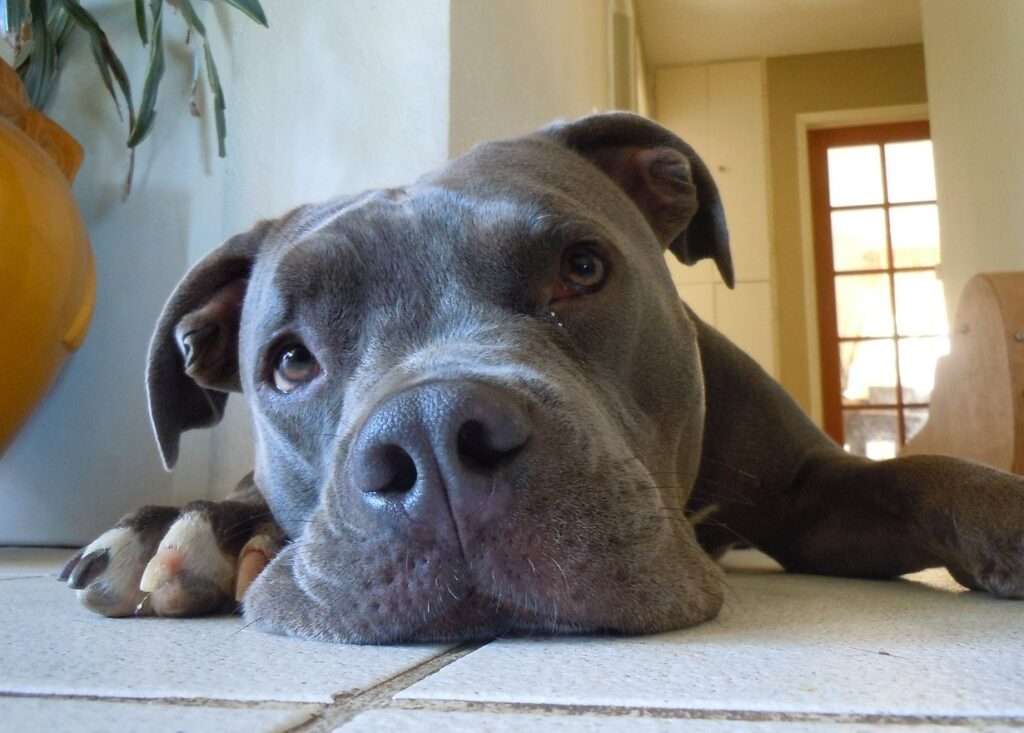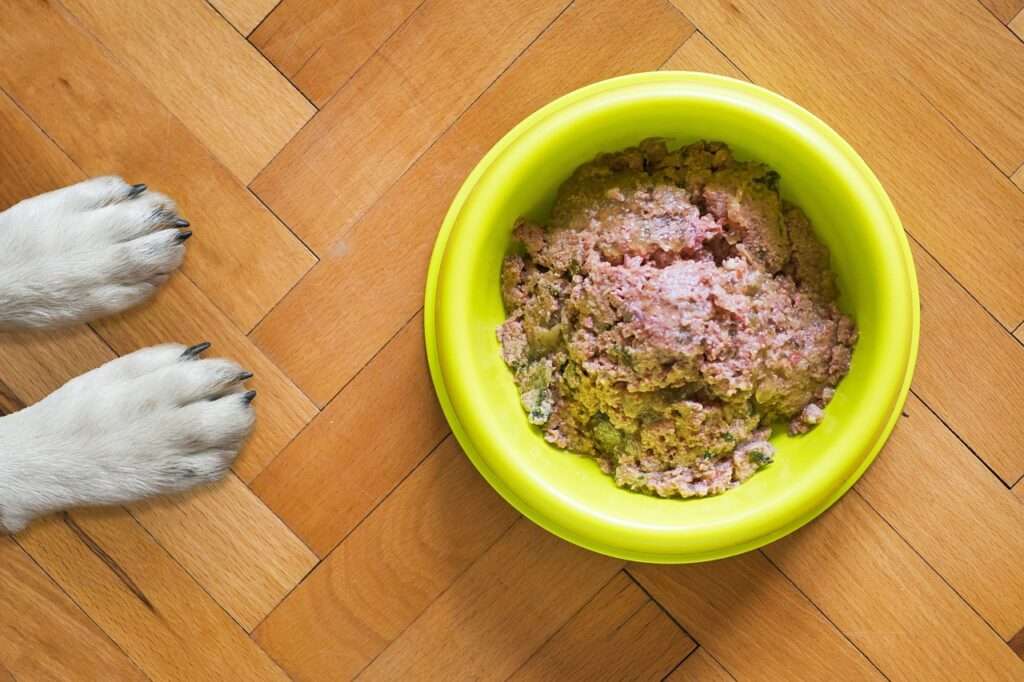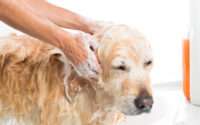Dog Pooping Clear Liquid? Here’s What You Need to Know!
As devoted dog owners, we strive to provide the best care for our furry companions, ensuring their health and well-being at all times. Monitoring your dog’s feces may not be the most glamorous aspect of pet ownership, but it plays a crucial role in assessing their overall health.
One concern that often arises is when you notice your dog pooping clear liquid. At BarkLikeMeow, we understand your worries, and that’s why we’ve created this comprehensive guide to help you understand the potential causes, symptoms, and treatment options for dogs experiencing this issue.
Understanding Normal Dog Poop
Normal dog poop serves as a valuable indicator of your furry friend’s digestive health. By knowing what constitutes healthy dog poop, you can better monitor your dog’s overall well-being. Here are some key factors to consider:
- Consistency: Normal dog poop should have a formed, yet malleable, consistency. It should neither be too hard nor too soft. Stool that is excessively firm and difficult to pass may indicate constipation, while loose or watery stool may suggest diarrhea or an underlying digestive issue.
- Color: Healthy dog poop typically has a brown color, ranging from light to dark shades. This hue is attributed to the breakdown of bile pigments during digestion. However, slight variations in color can occur based on diet and other factors. Keep in mind that certain foods, treats, or medications may temporarily influence the color of your dog’s poop.
- Odor: Normal dog poop has a distinct, but not overpowering, odor. It should not have an excessively foul smell. While it is normal for feces to have an odor due to the presence of waste products, an extremely strong or foul smell may indicate digestive problems or the presence of certain bacteria.
- Frequency: Dogs should have regular bowel movements that are consistent with their individual patterns. The frequency can vary based on factors such as age, diet, and activity level. Generally, most dogs will have one to two bowel movements per day. However, variations within this range can still be considered normal, as long as the stool appears healthy in other aspects.
Regular bowel movements play a crucial role in eliminating waste and toxins from a dog’s body. It’s important to note that dogs may experience slight variations in their stool from time to time due to factors like dietary changes or temporary stress. However, persistent changes in consistency, color, or frequency should be closely monitored and may warrant veterinary attention.
What is Clear Liquid in Dog Poop?
Clear liquid in dog poop can be a cause for concern among pet owners. It refers to the presence of watery or jelly-like substance in your dog’s feces. Identifying and understanding this phenomenon is crucial for ensuring your dog’s well-being. Clear liquid in dog poop should be distinguished from other abnormal stool colors, as it can indicate different underlying issues.
Why is My Dog Pooping Clear Liquid?
- Dietary Factors: Dogs can experience clear liquid in their poop due to sudden dietary changes or the introduction of new foods. A diet high in water content, such as consuming excess fruits or vegetables, can also contribute to this occurrence.
- Digestive Issues: Stress and anxiety can disrupt your dog’s digestive system, leading to changes in stool consistency, including the presence of clear liquid. Bacterial or viral infections, parasites, inflammatory bowel disease (IBD), and food allergies or intolerances are other potential digestive issues that can cause this symptom.
- Medications and Treatments: Certain medications, such as antibiotics, can disrupt the balance of bacteria in the gut, resulting in changes in stool consistency. Additionally, some medications may have side effects that affect the digestive system, including the appearance of clear liquid in the poop.
- Other Health Conditions: Several underlying health conditions can manifest as clear liquid in dog poop. Pancreatitis, an inflammation of the pancreas, can disrupt digestion and lead to changes in stool consistency. Exocrine pancreatic insufficiency (EPI), where the pancreas fails to produce enough digestive enzymes, can also cause this symptom. Furthermore, liver disease and kidney disease can affect the body’s ability to process waste, leading to changes in stool appearance. In rare cases, certain types of cancer can also contribute to the presence of clear liquid in the poop.
Identifying the potential causes of clear liquid in dog poop is crucial in understanding your furry friend’s health. In the next section, we will explore the symptoms and signs associated with this condition, helping you recognize when to seek veterinary assistance for your beloved pup.
Symptoms and Signs Associated with Clear Liquid in Dog Poop

Identifying the symptoms and signs associated with clear liquid in dog poop is crucial for understanding your furry friend’s overall health. While the presence of clear liquid itself is a notable sign, there are other indicators that may accompany this condition:
- Diarrhea: Dogs experiencing clear liquid in their poop often have loose, watery stools that are more frequent than usual.
- Increased Frequency of Bowel Movements: Your dog may need to go potty more frequently than normal, indicating an underlying issue.
- Vomiting or Nausea: Clear liquid in the poop can be accompanied by vomiting or a general sense of unease, signaling digestive disturbances.
- Lack of Appetite: If your dog shows a decreased interest in food or refuses to eat altogether, it could be a sign that something is amiss.
- Lethargy or Weakness: Dogs with clear liquid in their poop may appear fatigued, lack energy, or seem weaker than usual.
- Dehydration: Watery stools can lead to fluid loss, potentially causing dehydration. Look out for signs such as excessive panting, dry gums, or reduced skin elasticity.
Diagnostic Procedures
When recognizing the significance of an accurate diagnosis for your dog’s health, identifying the underlying cause of clear liquid in dog poop often involves a comprehensive veterinary examination and various diagnostic procedures, which may include:
- Veterinary Examination and History-Taking: A skilled veterinarian will perform a thorough examination of your dog, taking into account their medical history, diet, recent changes in lifestyle, and any other relevant information you provide.
- Stool Sample Analysis: Collecting a stool sample allows veterinarians to assess for the presence of parasites, bacteria, or other abnormalities that may contribute to the clear liquid in your dog’s poop.
- Blood Tests: Blood work can help evaluate organ function, detect infections, assess nutrient levels, and identify any underlying health conditions.
- Imaging Techniques: X-rays, ultrasounds, or other imaging methods may be used to examine your dog’s digestive system, providing valuable insights into any structural abnormalities or disease processes.
- Biopsy (If Necessary): In certain cases, a biopsy may be recommended to obtain a small tissue sample for further examination under a microscope. This helps to determine the presence of specific conditions such as inflammatory bowel disease (IBD) or cancer.
By employing these diagnostic procedures, veterinarians can gather essential information to pinpoint the cause of clear liquid in your dog’s poop accurately. In the next section, we will discuss the treatment and management options available to address this condition and promote your dog’s well-being.
Treatment and Management
When it comes to addressing clear liquid in your dog’s poop, a tailored approach is necessary. Treatment and management options will depend on the underlying cause identified through diagnostic procedures. Advocating for the well-being of your furry companion, here are some potential strategies that can be employed:
Home Care and Supportive Measures:
- Adequate Hydration: Ensure your dog has access to fresh, clean water at all times. In cases of diarrhea or increased fluid loss, additional hydration may be necessary.
- Adjusting the Diet: Your veterinarian may recommend a temporary dietary modification, such as a bland diet or specialized food, to ease digestion and promote regular stools.
- Probiotics and Prebiotics: These supplements can help restore and maintain a healthy balance of gut bacteria, aiding in digestion and overall gastrointestinal health.
Veterinary Intervention:
- Prescription Medications: Depending on the underlying cause, your veterinarian may prescribe medications such as antibiotics, anti-inflammatory drugs, or anti-parasitic medications.
- Specialized Diets: In cases of food allergies, intolerances, or gastrointestinal disorders, your veterinarian may recommend specific diets formulated to address these conditions.
- Deworming or Parasite Treatment: If parasites are contributing to the clear liquid in your dog’s poop, deworming medication or other parasite treatments may be necessary.
- Managing Underlying Health Conditions: If an underlying health condition, such as pancreatitis or kidney disease, is identified, your veterinarian will develop a treatment plan specific to your dog’s needs.
Preventive Measures

Proactive pet care is essential to maintain your dog’s overall health and prevent issues such as clear liquid in their poop. Consider the following preventive measures:
- Gradual Dietary Changes: Introduce new foods or make dietary adjustments gradually to allow your dog’s digestive system to adapt.
- High-Quality Nutrition: Feed your dog a balanced and nutritious diet suitable for their age, breed, and specific dietary needs.
- Regular Veterinary Check-ups: Schedule routine veterinary visits to monitor your dog’s health, address any concerns promptly, and ensure vaccinations and parasite prevention are up to date.
- Proper Hygiene and Cleanliness: Maintain clean living environments and provide regular grooming to reduce the risk of infections or ingestion of harmful substances.
- Stress Management Techniques: Minimize stressors in your dog’s environment and provide ample mental and physical stimulation to promote overall well-being.
By implementing these preventive measures, you can help reduce the likelihood of your dog experiencing clear liquid in their poop. However, it’s essential to remember that each dog is unique, and consulting with a veterinarian is crucial for tailored advice.
When to Seek Veterinary Assistance
Determining when to seek veterinary assistance for your dog’s clear liquid in their poop is essential for their well-being. While some cases may resolve with home care, there are situations where professional intervention is warranted. To ensure that your dog receives the best care possible, consider the following guidelines:
- Mild Symptoms and Home Care Options: If your dog is otherwise healthy, eating well, and exhibiting only mild symptoms, you can try supportive measures such as adjusting their diet or providing probiotics. Monitor their condition closely and seek veterinary help if the symptoms worsen or persist.
- Signs of a Medical Emergency: If your dog experiences severe diarrhea, persistent vomiting, lethargy, refusal to eat or drink, or exhibits signs of distress or pain, it is crucial to seek immediate veterinary assistance. These can be indications of a medical emergency that requires prompt attention.
- Importance of Consulting a Veterinarian: Remember, veterinarians possess the expertise and knowledge necessary to accurately diagnose and treat your dog’s condition. If you have any concerns or questions about your dog’s health, it is always best to consult with a veterinary professional for personalized advice.
Conclusion
In conclusion, clear liquid in your dog’s poop can be a cause for concern. We understand the worries that come with noticing this unusual occurrence. By understanding the potential causes, recognizing associated symptoms, and seeking appropriate veterinary assistance, you can ensure your dog receives the necessary care.
Remember, this comprehensive guide is designed to provide general information and guidance. Each dog is unique, and it is essential to consult with a veterinarian for a proper diagnosis and tailored treatment plan. As devoted pet parents, it is our responsibility to prioritize our dogs’ health. Regular veterinary check-ups, a balanced diet, and a proactive approach to their overall well-being are crucial.
By being attentive to changes in your dog’s poop and seeking professional assistance when needed, you can promote their health, happiness, and quality of life. At BarkLikeMeow, we are committed to helping you be the best pet parent you can be. Together, let’s ensure our furry companions lead healthy and fulfilling lives.
Frequently Asked Questions
Q: What are the common causes of a dog pooping clear liquid?
A: Common causes include dietary factors such as sudden dietary changes or a high water content in the diet. Digestive issues, medications, and underlying health conditions can also contribute to this symptom.
Q: Is clear liquid in dog poop always a cause for concern?
A: Clear liquid in dog poop can be a sign of an underlying issue, but it is not always a cause for immediate concern. It is important to monitor your dog’s overall health and consult a veterinarian if other symptoms or changes in behavior occur.
Q: Can stress or anxiety cause a dog to poop clear liquid?
A: Yes, stress and anxiety can disrupt a dog’s digestive system and contribute to changes in stool consistency, including the presence of clear liquid.
Q: When should I seek veterinary assistance for my dog pooping clear liquid?
A: It is recommended to seek veterinary assistance if your dog experiences severe diarrhea, persistent vomiting, lethargy, refusal to eat or drink, or exhibits signs of distress or pain. Additionally, if the clear liquid in the poop persists or worsens, professional guidance is advised.
Q: How can I prevent my dog from pooping clear liquid?
A: Preventive measures include gradual dietary changes, feeding a balanced and nutritious diet, regular veterinary check-ups, maintaining cleanliness, and managing stressors in your dog’s environment.
Q: Can I treat clear liquid in dog poop at home?
A: Mild cases may be managed with supportive measures at home, such as adjusting the diet, providing probiotics, and ensuring adequate hydration. However, it is important to consult a veterinarian for accurate diagnosis and tailored treatment options.
Remember, while these answers provide general information, it is essential to consult with a veterinarian for personalized advice regarding your dog’s specific situation.




